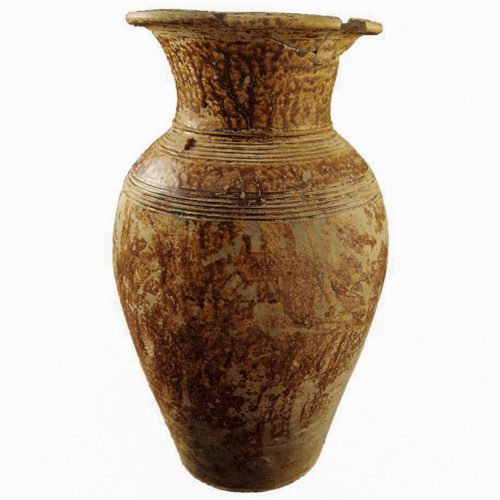LXML uncovers 2000 years old artefacts in Sepon mine
July 12, 2021
Lane Xang Minerals Limited (LXML) Sepon mine unearthed several artefacts dated to approximately 2,000 years ago within the Sepon mine area. The artefacts included axes and a large vase used in burial rituals during the transition from the Bronze to the Iron Age.
A similar pot was found in 2008 in the Thong Na-Gneuak (Dragon Field) – a heritage site that is being proposed as a Savannakhet Heritage Site.
LXML’s cultural heritage and archaeological team discovered another vase with iron axes, copper jewelry, and pearls believed to originate from the 12th century; and modern tools from the Lanexang Era between the 17th and 19th century.
Earlier this year, LXML uncovered hundreds of 6,000 years old from the Stone Age era.
Since operations commenced in 2003, LXML has sponsored an important cultural heritage program in Vilabouly District with the cooperation of the Ministry of Information, Tourism and Culture and the Lao National University to ensure historical artefacts are preserved for the benefit of future generations. Some of these objects are on display in a cultural heritage museum in Vilabouly, in Savannakhet Museum, and in the National Museum in Vientiane.
“Our value is underpinned by our respect for the tradition and culture of our host community” said Mr Saman Aneka, LXML Managing Director. “Since 2008, LXML invested over US$1.5 million to support the Lao PDR in archaeological research and cultural heritage preservation for future generations.”
Remarkable discoveries of artefacts and heritage sites have been made at the Sepon mine. We believe ancient mining around Sepon mine continued to about 1,300 years ago (700AD) where people have excavated the rich copper ore then refined it in the so-called Peun Baolo and Thong Na-Gneuak (Dragon Field) locations and exchanged minerals and metals since then. These dates have been confirmed from the examination of bamboo matting found in the mentioned well-preserved ancient mine-shaft support structures laid in the compacted wet clay just below the surface (10 to 40 metres deep).
Mining has been essential in the development of civilization and society throughout history. Excavations will continue and we look forward to reveal more exciting discoveries about Lao culture and history.




